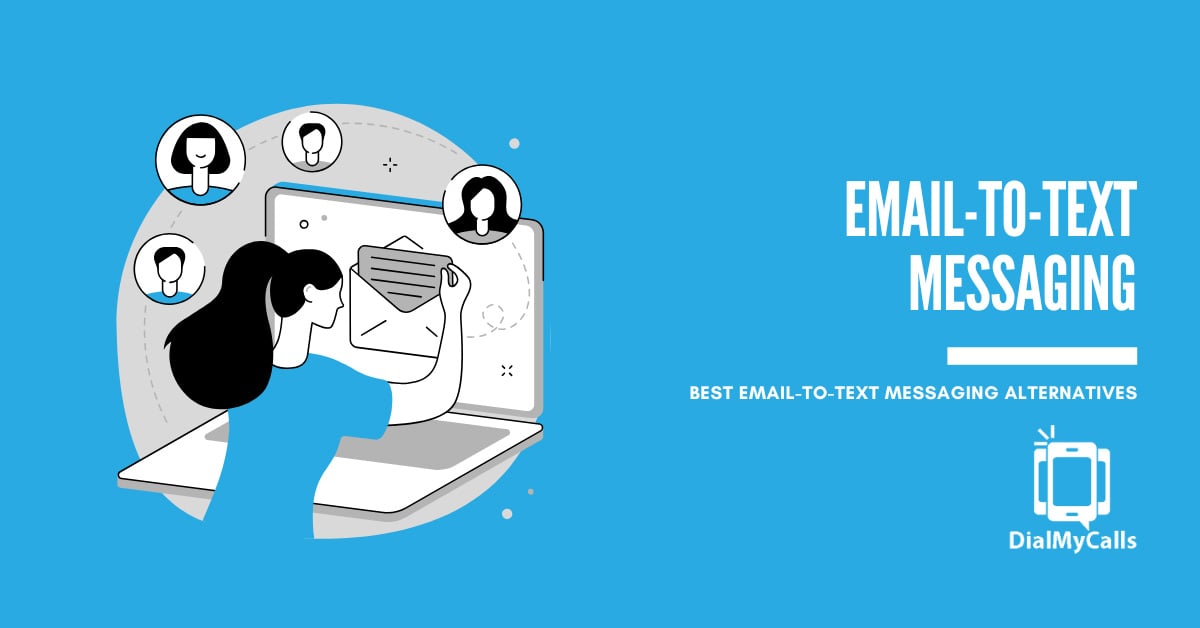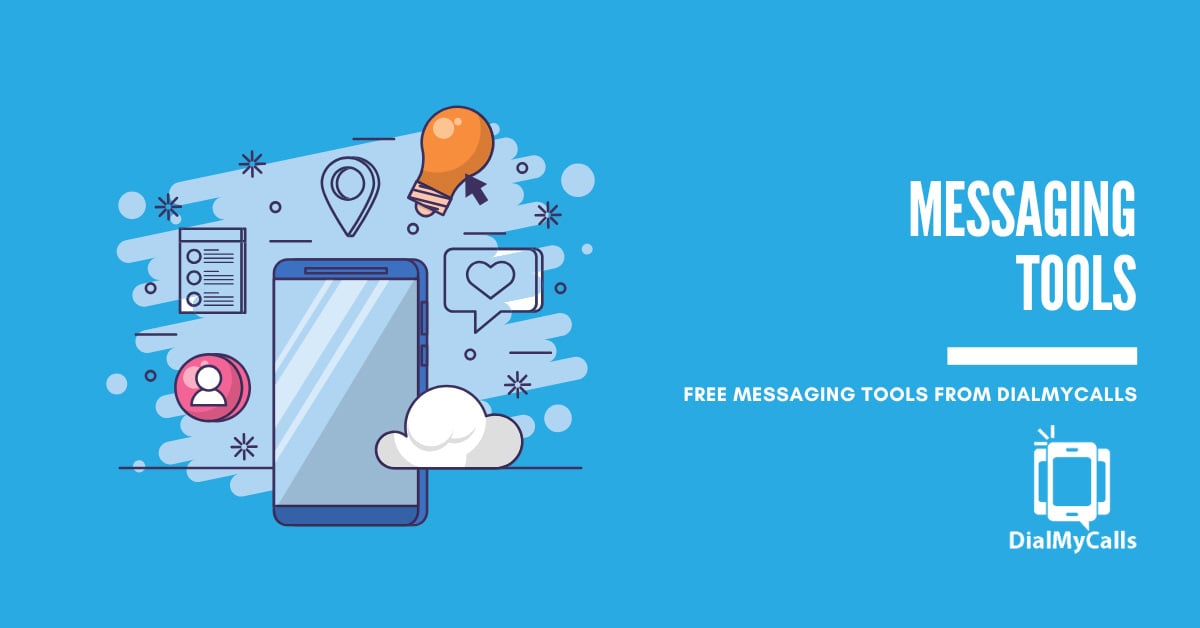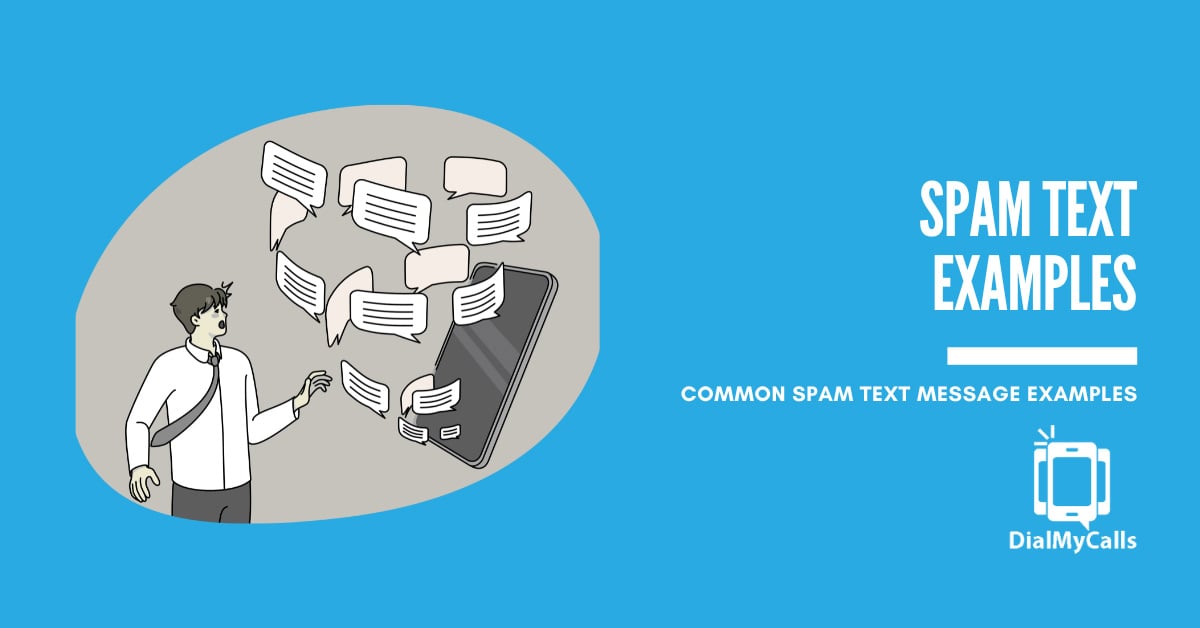Short Code Texting: The Ultimate Guide [2026 Update]
Posted by Saad Z. Asif in General Post on February 9, 2024
Reviewed by Tim Smith | Updated on February 26, 2026
![Short Code Texting: The Ultimate Guide [2024 Update]](https://www.dialmycalls.com/wp-content/uploads/2024/02/short-code-texting.jpg)
If you’re familiar with text marketing, you’ve probably heard the term “short code texting” come up in various scenarios. Short cold texting is a business marketing practice that’s just as efficient as it is popular.
Beyond its efficiency, though, it’s important to know how it works before applying it to your marketing strategy. For one thing, knowing what it is and how it works could help you increase the turnover it brings to your business.
With that said, let’s discuss short code texting in detail. We will go over its working principles, types, and how it can benefit your business.
What is Short Code Texting?
Short code texting is a practice where businesses use a 5-6 digit phone number to send messages to recipients. The recipients opt-in to receiving texts through short c odes by sending a keyword to the number. Once this happens, the business can send bulk automated messages to various people through the short code.
With short code texting, companies can send high volumes of messages to multiple recipients in no time. Recipients can also subscribe to marketing messages, fill out survey forms, and vote on certain issues if need be.
Additionally, short code texting is efficient for no-reply messages. So you can pass concise but adequate information about your company, product, or services to your recipients.
Examples of Short Code Texting

Both small and large companies apply short code texting for various reasons. Below are some ways businesses use short code texting and examples of messages they send to recipients:
Donation Requests
Institutions like UNICEF, the American Cancer Society, and the Salvation Army use short code texting to request donations from subscribers. Each of these institutions and companies has specific short codes for donations. Here’s an example of short code text for donation:
Customer Service and Inquiries
Companies such as Starbucks, Domino’s Pizza, Target, and Uber use short codes to assist customers with various issues. Most times, these companies use specific keywords that indicate certain common issues and trigger auto-reply systems. Here’s an example:
Announcements and Information
Short codes for texting are suited for helping businesses pass vital information to their customers. Companies like Amazon, Pizza Hut, and Olive Garden use text codes to alert customers about sales, events, or available discounts at their stores. For example:
Types of Short Code Texting

Various companies have varying specifications and use for their short codes. As such, there are three different types of short code texting suited to various companies’ needs. Below, we will go into detail about each type and what needs they cater to:
Shared Short Codes
Shared codes were the most common type of short codes among companies that apply mass texting services. In fact, they were equally as popular with texting platforms.
Reach Thousands, Instantly
Grow Your Business by Leveraging Mass Texting
With shared short code texting, businesses use the same text codes. However, when a client subscribes to a particular service via a business, their messages will only get to that business.
Because of how beneficial shared short codes are, texting platforms typically give them away for free. In recent times, however, mobile providers have generally stopped offering that service. So, texting platforms can no longer give out these text codes.
Although shared short codes made it easier for clients to remember various business short codes, this type of texting had its downsides.
For example, if a customer subscribed to two businesses with the same short codes, it could lead to confusion. Not to mention, if one company breaks compliance laws, the code will become unavailable to other businesses using it.
Random Dedicated Short Codes
These short codes, unlike shared text codes, are limited to one business per short code. Hence, texting platforms lease these texting short codes on an individual basis. Businesses also have no power over the text message codes they receive.
Unsurprisingly, random dedicated short codes have their cons. However, they allow each business to have its short code and, as such, reduce the chance of confusion with clients. They also ensure that the business doesn’t get caught up in compliance penalties.
Random dedicated short codes cost around $500 per month, but it varies according to the texting platform offering the code.
Vanity Dedicated Short Codes
Like random dedicated short codes, these text codes are also specific to each business or organization. The only difference here is that businesses can customize and choose their short codes.
With vanity dedicated short codes, there are fewer chances that customers would forget the company short code. This is because you can choose a texting code that numerically spells out your business name. And since they are business-specific, the customers won’t mistake your short code for another.
Typically, vanity dedicated short codes are the most expensive type of texting code because of the customization options. Vanity dedicated short codes could cost up to $1000 per month, depending on which mass texting platform offers the service.
Benefits of Short Code Texting

Short code texting offers many benefits, ranging from faster message delivery to easier responses on the client’s part. Here, we will talk about some of these benefits in detail:
Effective Message Delivery
In business marketing, the goal is for clients to view your message and perform an action that leads them to your services. The success of this process determines how effective your messages are.
With text messaging short coding, you can send short, straightforward messages with clear CTAs that make it easy for clients to understand. This breeds better message delivery since clients can easily spot the CTA and perform the action in no time.
In addition, short codes are pre-vetted. So, message carriers are more likely to let them go straight to the recipient without rigorous filtering.
Fast Messaging
Short codes for texting have a message delivery rate of about 350 messages per second. To this effect, they make it easy to send hundreds of messages to your recipients in minutes.
This fast messaging makes them suitable for both small and large businesses as they cater to any recipient size.
Quicker Response Rates
Since short code texting works with keywords, recipients can locate them and the actions they cause. As such, it takes less time for them to respond to messages or perform actions where necessary.
Not to mention, they are convenient for the recipient since they don’t have to read too far to get the message.
What are the Cons of Short Code Texting?

Without a doubt, short code texting has outstanding benefits. However, you can’t determine if it’s right for you without considering the downsides as well. With that in mind, here are three cons of short code texting:
Cost of Short Codes
As mentioned earlier, shared short codes have phased out of the business marketing space because mobile providers no longer offer them. As a result, businesses must have dedicated short codes.
On average, the cost of getting a short code could be expensive, especially for small businesses. And if the business wants to get a vanity dedicated short code, that incurs more cost, thus making it less accessible.
Country Limitations
For businesses with clients in different countries, short code texting would require more technicality. For one thing, the business would need a specific text code per country. In the end, this adds to the cost of getting the line and the cost of marketing as a whole.
Country limitations with short code texting can also reduce the business’ marketing reach. As such, it reduces the turnover rate as well.
Lengthy Setup Process
Unless you’re planning to use a shared short code, which is hardly available, it takes a while to set up dedicated text codes. Some businesses could wait as long as weeks to months in rare cases to get their dedicated short code approved.
This lengthy setup process puts a wedge in marketing plans because businesses can’t reach their clients until their short code arrives.
How Does Short Code Texting Work?

Fundamentally, short code texting works by sending messages to various recipients through 5-6 digit numbers. These messages are usually short and straightforward and use keywords as CTAs.
For short code texting to work, the business must first have a text message code. To this effect, businesses reach out to mobile providers through texting platforms like DialMyCalls and apply for a short code.
In their application, they state what they plan to use the short code for. After applying and submitting their application, the businesses wait a few weeks to get it approved.
Once the business’ short code application passes the screening, the company receives a short code. This provides a medium for them to send and receive short messages in seconds. So, the business drafts a message copy and selects its keywords for a specific range of actions.
With their short codes and keywords set, businesses have to gain consent from their clients to send them messages. It ensures they don’t breach any compliance laws or infringe on clients’ privacy.
Following this, the business texting platform can form a contact list comprising clients who have opted in to the service. Then, the businesses can send messages to these clients and receive responses through keywords.
Can You Look Up Short Codes?
Yes, you can look up short codes to find out which organization owns a particular text code.
The United States has a short code lookup tool that has data about all the registered short codes in the US. To look up a short code, you can type in the name of the organization you’re looking for.
You can also type in a short code to locate the organization that sent a message through it. The US short code lookup tool would identify the owner of the short code, as well as the date of registration. There’s also the option of opting out of their short code texting service.
How to Do Short Code Texting
- Determine the Primary Purpose of the Short Code
- Select a Short Code Texting Platform
- Draft Your Campaign
- Apply to Get a Short Code
- Launch Your Short Code
After determining that short code texting suits your company’s needs, you should know how to do it. The good news is you don’t have to look too far to find guidance on how to find short codes for text messaging and how to set it up. The following are the steps to applying short code texting to your marketing:
Step 1: Determine the Primary Purpose of the Short Code
Before deciding to apply for a short code, you must first define the purpose it would serve for your business. Knowing the primary purpose of the short code makes it much easier to fill out the short code application form. Plus, it adds definition to your marketing because you can focus on the short code’s primary purpose.
You can dedicate your short code to receiving votes, carrying out surveys for your business, or accepting competition entries. You can also use the short code as a dedicated medium for announcements, offers, or even customer support.
While determining the short code’s purpose, it’s also a good idea to plan your keywords. This makes the application process much easier since you don’t have to think up keywords on the spot.
Step 2: Select a Short Code Texting Platform
Once you’ve ascertained the primary purpose of your short code, the next step is to choose a platform. When doing this, it is important to compare various platforms according to your requirements so you make a choice that suits you best.
In addition, you should also compare the features and privileges each platform offers. Simultaneously, consider your budget and the cost of the platform. This way, you can select an effective short code texting platform that fits your requirements and doesn’t exceed your budget.
Step 3: Draft Your Campaign
Drafting your campaign beforehand speeds up the application process since you can copy and paste it into the application form. It’s vital to note that this campaign gives the mobile providers an idea of the messages you’ll be sending.
To this effect, while crafting your campaign, you must ensure that you don’t breach any privacy laws or regulations. You should also keep it concise so the providers can get the information you’re trying to pass across quickly. This makes the campaign much easier to review, hence speeding up the vetting process.
Step 4: Apply to Get a Short Code
While the application process for short codes might seem cumbersome, mobile providers need to vet your application. This prevents issues from occurring after the setup process and ensures your campaign sticks to compliance regulations.
The application process requires you to select the type of text code you need as well as the purpose of the code. Some platforms require you to specify the keywords you plan to use in your campaign. In fact, some short code texting platforms might request your text campaign for adequate verification.
Furthermore, you would be requested to fill in your customer care contact details to ensure clients can reach you in emergencies. Once you’ve filled this in, the review process will begin. This process could take days to weeks, depending on the platform and how long it takes to confirm the details you provide.
Step 5: Launch Your Short Code
Now that everything’s set up and your application’s made it through the review process, it’s time to launch your short code. Based on the texting platform you use, you’d be required to pay a fee for the short code. The platform would also charge for its mass texting services.
Once that’s all set, you can start sending campaigns. And if you have any issues launching your short code, you can always reach out to the texting platform for help.
4 Tips and Strategies for Short Code Texting

Besides setting up your text number codes, there are a few things you should know. These tips and strategies ensure that your short code texting process is smooth, efficient, and free of obstacles. With that said, here are four tips and strategies for short code texting:
1. Always Adhere to Short Code Compliance Regulations
With mass texting, it’s quite easy to overlook or breach compliance regulations. As such, it’s crucial to stay up to date with text messaging laws like the Telephone Consumer Protection ACT (TCPA).
These laws exist to protect customer information and privacy. Therefore, breaching them could leave a dent in your company’s image in addition to the fines. Plus, it could harm your relationship with your clients and reduce the campaign’s effectiveness in the long run.
2. Choose a Memorable Text Short Code
The point of short codes is to make it easier for clients to reach your business. Hence, using complex texting codes makes it difficult for customers to remember the number. And in turn, it defeats the whole purpose of short code texting.
For this reason, when choosing a short code for your business, you should select a simple but memorable one. For example, the short code could spell out the name of your business.
To improve the memorability of your SMS text codes, you can also advertise alongside your services. You can use various media for this, including social media ads, emails, or television ads.
3. Avoid Bombarding Your Clients
It might be tempting to send multiple messages to your clients per day, especially since short codes make it so easy. However, you should be careful how often you send out messages.
The thing is, SMS messages are more personal to recipients because, most times, they pop up on their screens. Overdoing it means the recipients would get multiple notifications, which could become uncomfortable for them. As a result, the recipient could report your short code or unsubscribe from campaigns.
4. Leverage SMS Automation
In the business marketing space, the possibilities are limitless when you incorporate automation with your strategy. From simple responses to detailed directions for clients, SMS automation can save you both time and effort.
Even better, SMS automation enables you to send customized short messages to your clients without having to customize them yourself. Hence, it helps you build customer engagement in bulk SMS messaging with ease.
What is the Best Short Code Texting Service?
Short code texting is undoubtedly a game-changer in SMS marketing. However, with how effective the practice is, the short code texting service platform you choose affects how well it works. Therefore, it’s important to use only the best short code texting service for your business.
Fortunately, you don’t have to look too far to find the ideal platform for your short code texting needs. DialMyCalls has all the features you need, including, 2-way texting, keywords, and landline texting. With our seamless application and review process, you can skip the hectic technicalities and get to effective marketing in no time. Sign Up with DialMyCalls and say hello to efficient short code texting today!
Maximize Outreach, Save Time
Start Transforming Your Communication with Mass Texting
Author

Saad Z. Asif is a telecom executive and author with over 27 years of global experience in 3G, 4G, 5G, and IoT innovation. He has held leadership roles at Verizon, T-Mobile, Telenor, and VEON, and advised governments on award-winning telecom policies. Saad is the founder of Galaxy Technology Consulting LLC and author of three books on telecommunications.
Try Using DialMyCalls Right Now
Start For Free
Recent Posts
- Why Uptime Matters: Ensuring Redundancy and Failover in Emergency Communication Systems
- 9 Smart Ways Local Governments Use Mass Texting for Public Safety & Crowd Control
- How to Send Emergency Alerts During Network Outages or Low Connectivity
- What Is NG9-1-1? How Next-Generation 911 Will Transform Emergency
- How to Use Fire Emergency Alerts to Improve Safety Response
Categories
“I am a youth minister and have spent hours in the past calling students individually to remind them of an upcoming event or to get out an urgent announcement. With DialMyCalls.com, I cut that time down to about 1 minute. I also love how I can see exactly who answered live and how long they listened so I know if they heard the whole message. DialMyCalls.com is the best website I have stumbled upon all year! Thanks!”
Central Baptist Church
Try Using DialMyCalls Right Now
Start For Free
Author

Saad Z. Asif is a telecom executive and author with over 27 years of global experience in 3G, 4G, 5G, and IoT innovation. He has held leadership roles at Verizon, T-Mobile, Telenor, and VEON, and advised governments on award-winning telecom policies. Saad is the founder of Galaxy Technology Consulting LLC and author of three books on telecommunications.
Try Using DialMyCalls Right Now
Start For Free
Recent Posts
- Why Uptime Matters: Ensuring Redundancy and Failover in Emergency Communication Systems
- 9 Smart Ways Local Governments Use Mass Texting for Public Safety & Crowd Control
- How to Send Emergency Alerts During Network Outages or Low Connectivity
- What Is NG9-1-1? How Next-Generation 911 Will Transform Emergency
- How to Use Fire Emergency Alerts to Improve Safety Response
Categories
“I am a youth minister and have spent hours in the past calling students individually to remind them of an upcoming event or to get out an urgent announcement. With DialMyCalls.com, I cut that time down to about 1 minute. I also love how I can see exactly who answered live and how long they listened so I know if they heard the whole message. DialMyCalls.com is the best website I have stumbled upon all year! Thanks!”
Central Baptist Church
Try Using DialMyCalls Right Now
Start For Free


